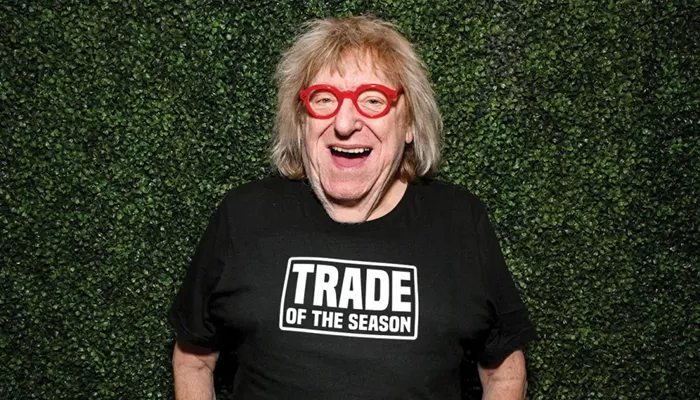Bruce Vilanch, a renowned Oscar ghostwriter, has played a pivotal role in shaping the Academy Awards for decades. Known for crafting one-liners for hosts at the Oscars, Grammys, Emmys, and Tonys, Vilanch’s career spans multiple eras of television, including his work on the infamous 1989 Oscars with the Rob Lowe-Snow White debacle. His new tell-all memoir, It Seemed Like a Bad Idea at the Time (out March 4), revisits some of the wildest TV moments he’s been part of, including both disasters and unforgettable successes.
Ahead of the 97th Academy Awards, Vilanch shared his thoughts on past hosts, the balance between entertaining Hollywood elites and a mass audience, and the one joke he regrets never making it to air.
Navigating the Oscars: Balancing Hollywood and the Mass Audience
The Oscars are unique in that they serve both as a high-profile Hollywood event and a televised spectacle for a broad audience. Vilanch admits it’s a delicate balance: “While everyone in the room understands the references, viewers at home might be confused. You just have to find a way to make it work for both,” he explains. The key, he says, is creating jokes that engage the audience in the room and allow the viewers at home to feel the energy, even if they don’t catch every reference.
Key Advice for Oscar Hosts
Vilanch has a simple yet vital piece of advice for Oscar hosts: “Frontload the show.” He explains that as the night progresses, the atmosphere shifts as winners celebrate and losers zone out. “By the time you’re halfway through, people stop paying attention. They’re texting or thinking about their next career move,” he says. “You’ve got to hit them hard at the start to keep the energy up.”
What Makes a Great Oscar Host?
A great Oscar host isn’t just about delivering jokes. Vilanch believes that, like Jo Koy’s performance at the 2024 Golden Globes, a host must also be a major star. “If you’re going to poke fun at big names, you need to be on their level,” he notes. Few people can handle this, but when done well, it elevates the show.
Is There Any Upside to Hosting an Awards Show?
For some hosts, like Nikki Glaser of the 2025 Golden Globes, Vilanch sees a “great upside.” Glaser, known for her edgy but approachable style, found success by balancing a “dirty” act with a likable persona. However, Vilanch points out that this approach might not work at the Oscars, where the tone is more formal and the audience is more traditional.
The Worst Oscar Host?
Vilanch doesn’t hesitate when asked about the toughest host he worked with: Ellen DeGeneres. “She was scared,” he recalls, noting that DeGeneres kept to herself during her time as host. “She became protective and distant, likely due to everything she was dealing with at the time,” he adds. Despite this, Vilanch still respects her, but the experience was “not fun” for the writers.
Political Sensitivities and Writing for the Oscars
Given the political landscape, Vilanch feels the Oscars have become less politically charged. “The Academy is now more international, and less Hollywood-centric,” he observes. While political moments can be controversial, Vilanch embraces them as a writer. He recalls the 2003 Oscars when Michael Moore used his acceptance speech to protest the Iraq War. The reaction was mixed, with some audience members booing him, while host Steve Martin cleverly diffused the tension with a sharp joke.
The Joke That Never Made It to Air
One moment Vilanch regrets is a joke about Richard Gere. After rumors circulated about Gere’s personal life, a joke was written for Billy Crystal to deliver: “Richard Gere was originally going to present with Fievel, the mouse from An American Tail, but Fievel backed out.” However, just before airing, the director asked Crystal to cut it. “Look at him,” the director said, referring to Gere, “He’s going to have a heart attack if you make that joke.” Vilanch respects Crystal’s decision to prioritize Gere’s comfort, even though it meant cutting what could have been a memorable moment.
Surprise Jokes and Oscar Traditions
Vilanch also shared stories of when celebrities were unexpectedly roasted, recalling a joke Billy Crystal wanted to make about Elizabeth Taylor during her introduction of Al Pacino. “Billy’s joke was perfect, but it had a personal edge about her marriage,” Vilanch explains. “Gil Cates, the director, had to call Elizabeth and tell her. She didn’t even know who Larry Fortensky was, her seventh husband, which made the whole thing even more absurd.”
Bruce Vilanch’s career offers a unique perspective on the inner workings of one of Hollywood’s most glamorous and unpredictable events. As the Oscars continue to evolve, his insights remind us of the delicate balance between humor, timing, and the personalities that make up the star-studded evening.

